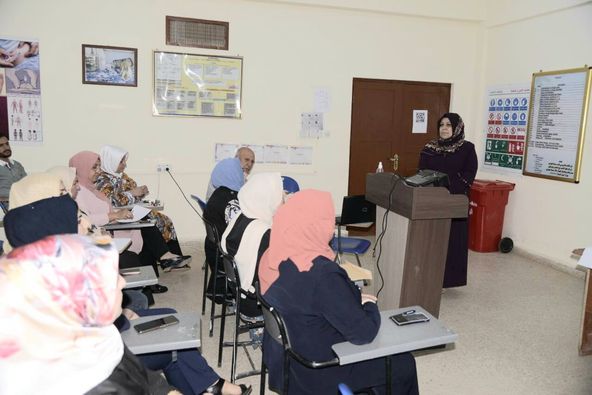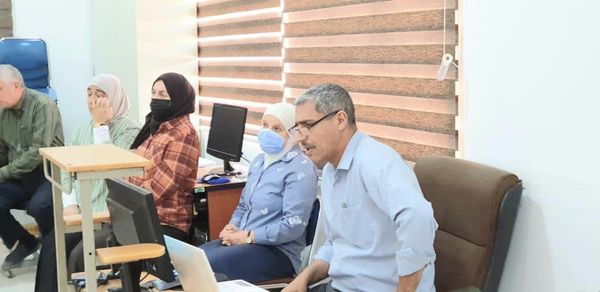
Technical Institute / Kirkuk organizes a medical scientific course on the role of natural antioxidants in the body
2022-04-24
Mosul Technical Institute organizes a scientific workshop on the importance of sustainable energy in reducing global warming…
2022-04-25Technical Institute / Kirkuk organizes a medical scientific course on the role of natural antioxidants in the body
Under the patronage of the President of the Northern Technical University, Prof. Dr. Alia Abbas Ali Al-Attar, and under the supervision of the Dean of the Technical Institute / Kirkuk, the Department of Community Health Technologies organized a medical scientific course on (the role of natural antioxidants in the body).
The lecture was given in the session:
Assistant teacher Hussein Saber Qader
Assistant teacher Jalnik Hamid Mahmood
Assistant Professor Dr. Laila Abdel Sattar Sadiq
The course dealt with introductory lectures about oxidative stress and about antioxidants and their role in confronting free radicals and their types produced by the body and types of antioxidant foods and the diseases associated with them.
The course showed that oxidative stress is a disorder or imbalance that occurs in the human body between the activity of free radicals and antioxidants, and this imbalance may lead to damage to cells and tissues. While antioxidants are known as molecules that protect cells from damage caused by free radicals, free radicals are a natural product of the metabolism process.
The course aimed to:
Identify the types of antioxidants, a type that the body manufactures and is called intrinsic or enzymatic antioxidants, which are a group of enzymes that work to remove the toxicity of free radicals by neutralizing free radicals, i.e. re-stabilizing them directly or indirectly, such as superoxide dismutase, alpha-lipoic acid, catalase enzyme, and glutathione Peroxidase, where people lose some of their ability to produce endogenous antioxidants as they age, and global studies and research indicate that some health conditions such as cancer, Parkinson’s, muscular dystrophy and HIV can reduce the production of endogenous antioxidants. The second type, which depends on the diet, is called non-enzymatic antioxidants and their source is food, or they are formed inside the body naturally. Depending on this basis, non-enzymatic antioxidants can be divided into exogenous antioxidants and include those taken with food such as folic acid and vitamins such as E, C, A, and the B complex vitamin group, minerals such as manganese, copper, zinc, and endogenous antioxidants including glutathione, uric acid, bilirubin, ceruloplasmin, iron-binding proteins.
The session came out with several conclusions, including:
Food is the main source of antioxidants, as we find them in plant and animal sources, but they are more available in plants, and the most important sources of them are water-soluble vitamin C. It is available in many vegetables, fruits, and citrus fruits. It is one of the main fat-soluble antioxidants and plays a key role in protecting cell membranes. From oxidative damage, it is available in many sources, the most important of which are nuts, various seeds, vegetable oils, and leafy vegetables. The course also concluded knowledge of the health benefits resulting from the increased consumption of antioxidants, such as improving the eye absorbent, strengthening the vision, enhancing skin health, delaying the appearance of wrinkles, preventing heart disease and stroke, avoiding exposure to pollutants, stress, and anxiety, reducing the intake of ready-made foods and taking antibiotics.


